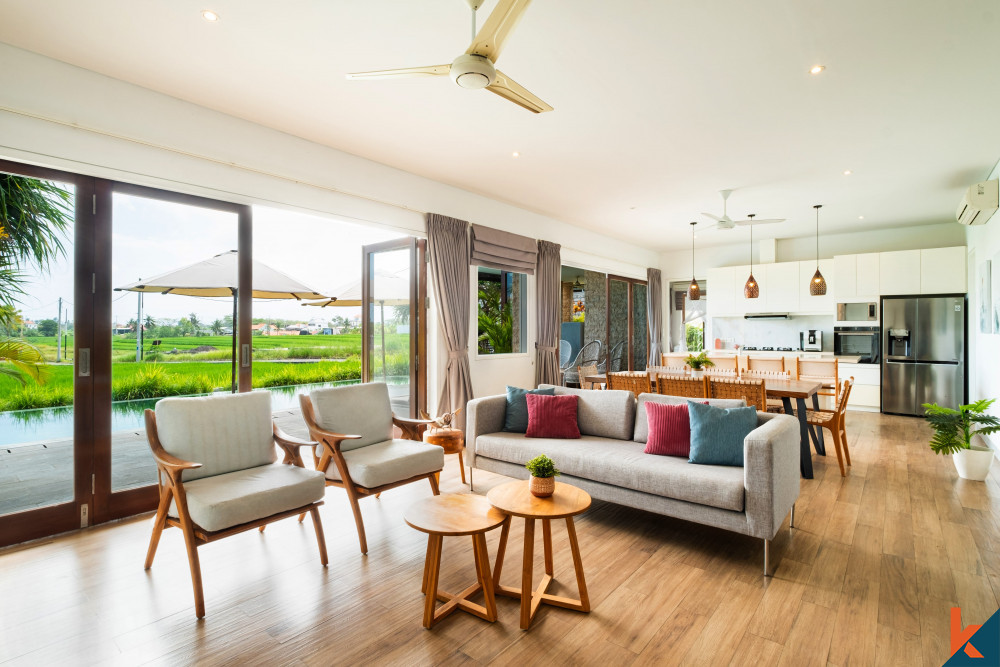When it comes to property investment in Bali, Indonesia, the hot topic is always Airbnb vs traditional rentals. Which path should you take to reap the most benefits? To maximize your ROI, we’ll delve into the intricacies of both rental models in this competitive market.
Bali’s enduring appeal as a tourist destination makes it a fertile ground for Airbnb investments. The platform’s flexibility allows property owners to set dynamic pricing, optimizing for high-demand periods such as festivals or peak tourist seasons. This way, you can significantly increase your earnings during these times, sometimes even doubling or tripling average rates.
On the other side of the coin, traditional rentals offer a more predictable and stable income stream. These properties often feature long-term contracts that guarantee a fixed monthly income. However, this stability comes at a cost: you are locked into longer contract periods, limiting your ability to increase prices in response to demand surges or inflation.

Operating Costs: A Close Look
To make an informed investment choice, it’s essential to scrutinize operating expenses. Due to short-term tenant turnover, airbnb properties require frequent cleaning, maintenance, and potentially higher insurance premiums. Traditional rentals may involve fewer operating costs but still necessitate ongoing maintenance, property taxes, and potentially property management fees if you choose to outsource this function.
Regulatory Aspects: What You Need to Know
Navigating the regulatory landscape in Bali can be challenging. Airbnb hosts need to keep up with a range of regulations, including the necessity for permits, registration with local authorities, and tourism taxes. Traditional rentals are generally less complicated from a legal standpoint but still require compliance with zoning laws and contractual obligations.
Risk Factors: Market Volatility and Vacancies
Airbnb’s income potential can fluctuate due to market volatility. High-demand periods offer the chance for increased income, but low seasons can see reduced occupancy rates. Traditional rentals, while offering more financial predictability, might face extended vacancy periods if long-term tenants move out and suitable replacements are not found quickly.
Rental Yields: Crunching the Numbers
Evaluating rental yields helps give a clear picture of potential profitability. In many cases, Airbnb properties in prime locations of Bali generate higher rental yields compared to traditional rentals. However, this is subject to various factors like the quality of the property, its location, and how efficiently it’s managed.
Marketing Reach: How Far Can You Go?
Airbnb offers the advantage of a global platform that attracts a vast and diverse audience. This exposure allows you to tap into a larger market, effectively increasing your property’s visibility and booking rates. Traditional rentals, by contrast, often depend on local advertising and property agents, thereby limiting their reach and potential tenant pool.
Tax Implications: An Unavoidable Factor
Taxes are a significant consideration for any property investment. Airbnb involves multiple layers of taxation, including income and tourism taxes, which might require you to hire an accountant well-versed in this complexity. Traditional rentals usually come with more straightforward tax structures, which can be an advantage for those looking for a simpler financial model.
Location Matters: A Game-Changing Factor
Last but not least, the location of your rental property in Bali can dramatically affect its profitability. Prime tourist spots like Seminyak, Ubud, and Canggu tend to offer higher ROI for Airbnb rentals due to their popularity. Traditional rentals may not yield as much in these areas but could be more profitable in residential zones where long-term housing is in demand.
In summary, both Airbnb and traditional rentals in Bali offer unique advantages and challenges. Your choice should be influenced by your investment goals, risk tolerance, and commitment level. By considering all these factors, you can make an educated decision that aligns with your financial objectives.


